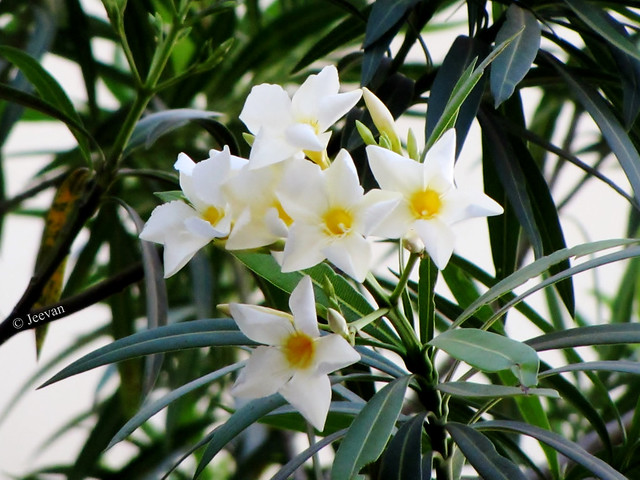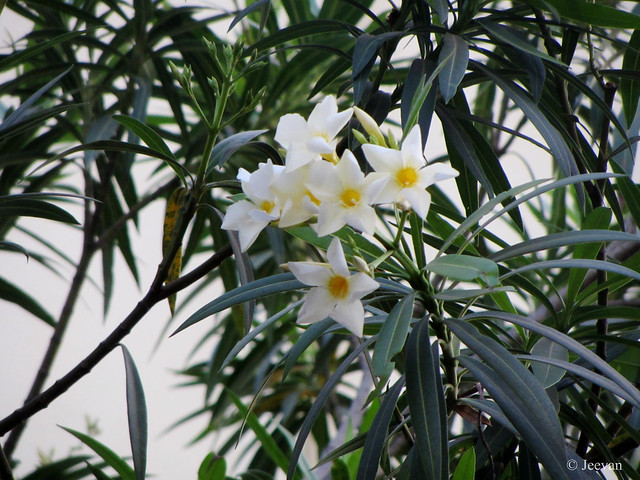Nerium
Oleander is an evergreen shrub thrives in the house next to ours and it has
beautiful flowers in white with pale yellow centre. Native from the Mediterranean
area to Southeast Asia, the shrub is one of the most poisonous shrubs known today
which has toxic in all its parts. I captured the flowers (in couple of photos below)
during the early summer season when the shrub was in its full blossoms.
Native
to mild climates, the Nerium Oleander is a basic shrub for desert gardening and
in coler climates they make an outstanding container plants. An untrimmed shrub
can reach up to 20 feet tall with a spread of 10 feet and leaves grow to 10
inches. The easy to grow and drought resistant shrub, doesn’t have a particular
soil conditions.



Beautiful white blossoms !
ReplyDeleteoh, it's gorgeous!!
ReplyDeletei have it in my backyard
ReplyDeleteKeep in touch
www.beingbeautifulandpretty.com
www.indianbeautydiary.com
The flower looks beautiful! I like white and yellow flowers with the green leaves' background. Nice.
ReplyDeleteYou are correct, Jeevan.
ReplyDeleteI think Oleander is toxic to pets too.
But, the flowers are beautiful.
So, worth a 'shot', you know?
Have a Beautiful Day!
Peace :)
these are so beautiful. Guess it is not suitable for my garden coz my side is very hot
ReplyDeleteSometimes, beautiful looking things are poisonous!
ReplyDeleteDestination Infinity
Hello Jeevan!! Wow, Nerium Oleander is beautiful :)
ReplyDeleteVery beautiful flowers.
ReplyDeleteVery pretty!
ReplyDeleteJeevan,
ReplyDeleteThere is a beauty product called Nerium, which my wife was looking at for some reason. Using what I learned from this post, I immediately told my wife to be careful. She read up on it and it did contain Oleander. She won't be buying that product, thanks to your educational post, my friend.
Have a Beautiful Day!
Peace :
I am very surprised that this tree with pretty blooms is very toxic! Oh dear....... I thought it would be sweet smelling like jasmine. Normally fragrant flowers are not toxic and edible too as brewed tea nectars.
ReplyDelete